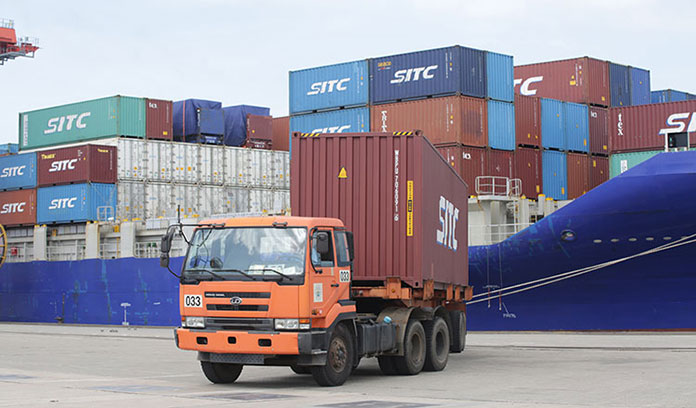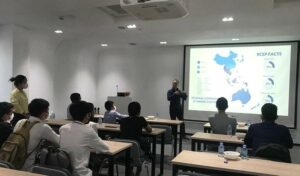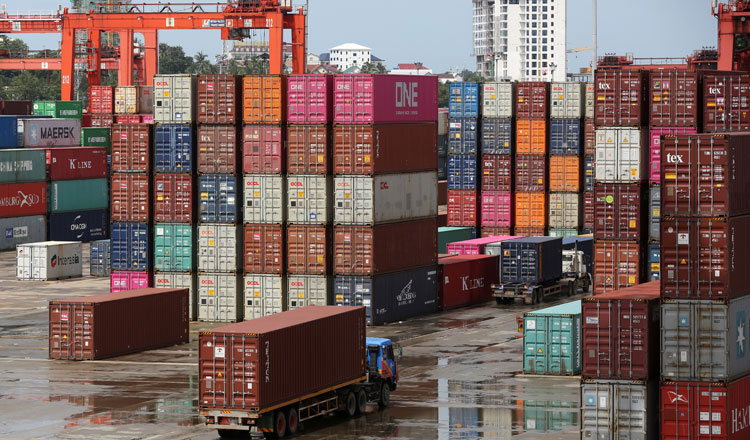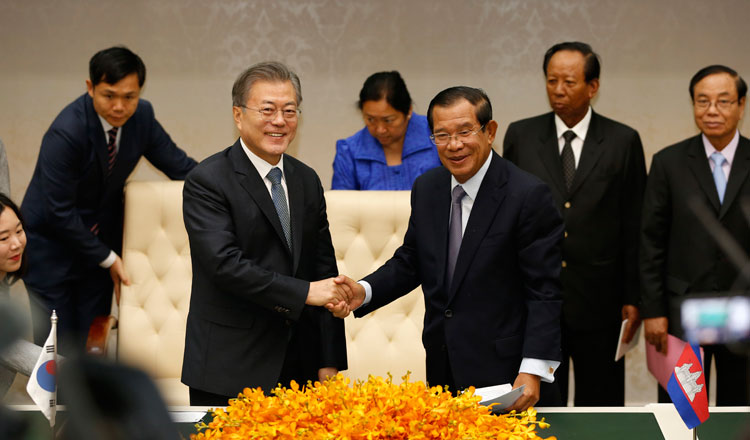Digitalisation, Training Incentives and Free Trade Offer Opportunities in 2022
Business leaders in Cambodia say there are plenty of opportunities for growth this year due to increased online transactions, the opportunity to collect and monetise the data gleaned from a growing digital economy, incentives provided by the new investment law, a successful vaccination campaign and lower tariff barriers for exporters.
They also see risks to growth such as the potential for more border closures as Omicron spreads, continuing problems with global supply chains, high freight rates and a building boom that produced more offices than customers.
International Business Chamber Cambodia (IBC) brought together speakers from finance, insurance, airports, advertising, logistics and real estate yesterday to give their views on the status of their industries and their outlook for the year ahead.
Association of Banks in Cambodia (ABC) Chairman In Channy, who is also President of ACLEDA Bank, said the financial industry was on stable ground after 20 percent growth in loans and deposits last year, stable headcount and the restructuring of loans for 600,000 borrowers. He said there will be increased competition this year but this is not necessarily bad news.
“More players are coming to Cambodia and that will create competition among banks and financial institutions but it is good for small kinds of businesses like micro and small companies,” he said. “The maturity of loans is longer and the interest rate is lower so it’s good for customers.”
Growing digital adoption will allow cross-border remittances from Thailand, Vietnam and Laos and expand into other ASEAN nations, Channy said.
The insurance industry also sees huge opportunities according to the Chief Executive Officer of Prudential Cambodia, Sanjay Chakrabarty. He said life insurance penetration in Cambodia is very low, at 0.6 percent, compared with 2.1 percent in Vietnam and 3.8 percent in Thailand, creating tremendous potential for growth. Chakrabarty said Cambodians have huge unmet needs, giving insurers the opportunity to offer products that will grow their assets and help them plan for retirement. Insurance apps will make the process simpler, he said, offering seamless sales and service, value-added products and instant claims.
Cambodia Airports CEO Alain Brun said government investment in infrastructure will help bring more tourists to Siem Reap and Sihanoukville. He said the tourism industry can also take advantage of an “amazing increase” in domestic tourism, while any consolidation will lead to stronger players in the market.
Toru Takai, President of Nippon Express (Cambodia), said high fuel prices and rising freight costs are likely to continue to hurt profitability for logistics companies. However, he sees opportunities in storage services and cold chain logistics for pharmaceuticals and foods. Government incentives for locally produced products, along with increasing free trade in the region may lead to higher exports for manufacturers and agricultural companies.
The Country Director for the Cambodia Partnership for Sustainable Agriculture agreed that 2022 would be a better year for farmers. Ratha Chan said the Regional Comprehensive Economic Partnership and the free trade agreement with China will lead to higher exports. Increasing adoption of farming technology, domestic processing of farm products and more warehouse and cold chain storage will provide opportunities to add value and improve productivity, he said, as Cambodia’s new investment law offers incentives to key industries, including agriculture.
CBRA Cambodia’s new Managing Director Lawrence Lennon said the real estate sector had a tough 2021 but the success story of the year was Cambodia fully vaccinating 85 percent of the population allowing the country to reopen its businesses and its borders. Office activity has returned to pre-Covid levels, retail activity is higher than it was before the pandemic and, compared to Thailand where people are working from home, Cambodians have returned to the office boosting landlords’ confidence, he said.
However, Lennon said confidence may be short-lived as increasing supply puts downward pressure on rental and occupancy rates. On the positive side developers and landlords are becoming increasingly creative, he said, offering office space to health care providers, schools and logistics companies. Cambodia is also showing signs of becoming an ASEAN logistics hub with Japan’s Aeon planning an international logistics centre in Sihanoukville next year and the Royal Group taking a majority stake in Phnom Penh Special Economic Zone.
The ability to harvest first-party data, the use of artificial intelligence to convert it instantly and predict future actions and the opportunity for technology to offer “hyper-personalisation” of products and services are huge opportunities for Cambodian companies, according to Analytics Data Advertising Key Account Director Tim Grintal. He said firms should focus on the data they have and learn how to use it effectively, taking advantage of technology already available to meet their customers’ needs.
IBC members also heard from World Bank Senior Economist Sodeth Ly. He said one of the major opportunities for Cambodia this year would be to bring more women back into the workforce. More than 20 percent of women between 15 and 64 are now unpaid family workers, Ly said. Cambodia’s new investment law offers a deduction of 150 from the tax base for vocational and skills training, giving employers a major incentive to give women training and opportunities in new and growing industries. Khmer Times







